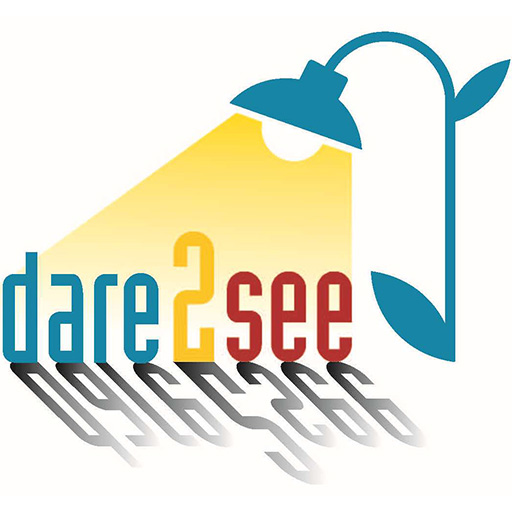
Dare to See!
Recognizing the Signs and Preventing Violence against Children
The Dare2see project is co-funded by the Erasmus+ Programme of the European Union

ABOUT THE PROJECT
The Dare2see project was created as part of an effort to raise awareness of the phenomena of violence against children and, above all, to better detect and prevent them within the educational system. Violence against children (mainly in the family environment) is a pressing social problem that has already been addressed in many studies, books, educations, actions and workshops. There is a lot of information on this issue and on the possibilities of action, but the results of the education so far show a kind of helplessness or ineffectiveness in terms of a real change in active recognition and action in cases of perceived violence against children.
Dare2see, which already bears the call “Dare to see!” in its name, was therefore conceived as a project to create a training program for professionals in VIZ, which takes as its starting point precisely the questions of this inefficiency and inability: Why is violence against children difficult to see, recognize, act appropriately and, above all, achieve change? What limits and prevents us as professionals at VIZ in this? What can we do about it, and above all, how?
The overall goal of the Dare2See training is therefore to mobilize various forces in a particular educational environment, which, in addition to information about violence against children and learning about its occurrence, would primarily bring a joint reflection on the mystery of this issue and a deep internal commitment to actively persist in action despite numerous potential obstacles.
Project background:
The project was developed in 2020 in cooperation with partners from Croatia and Serbia, based on perceived similar needs:
- In addition to providing education, kindergartens and schools are also responsible for the care and well-being of children. Kindergartens and primary schools should be environments in which signs of violence and abuse of children are recognised and in which appropriate intervention takes place in these cases.
- Employees in kindergartens and primary schools are even legally obliged to detect abuse and/or neglect of children and to initiate procedures for the protection of children (SLO: Domestic Violence Prevention Act, HR: Protection against Domestic Violence Act, SRB: Education Act).
- However, professionals do not have the appropriate knowledge, skills and competences to recognise the signs of violence and/or abuse and how to act when they encounter suspicion of abuse and/or violence against a child.
Objectives
General objectives of the project:
- Raising the profile of the teaching professions
- Improving the professional and general competence of educators, teachers, school heads and counsellors in primary schools and kindergartens
- Contributing to the reduction of secondary victimisation of abused children
Specific objectives of the project:
Develop training programs and learning materials for VIZ employees in the field of recognizing child abuse and neglect; and appropriate handling of detected cases.
Target Groups:
- Educators
- Teachers
- Counselling staff and counselling workshops in kindergartens and primary schools
- Kindergarten and primary school principals
- Students of the Faculty of Education, University of Ljubljana
Main activities/results
- Detailed analysis of the educational needs of all target groups
- Development of training programmes and learning materials for each target group
- Pilot training
- Evaluation of pilot trainings
- Finalization of programs and teaching materials
- Propagation of the project results
PROJECT TEAM:
Project Coordinator:
University of Ljubljana, Faculty of Education, Kardeljeva ploščad 16, SI – 1000 Ljubljana
Contakt:
University of Ljubljana, Faculty of Education, Kardeljeva ploščad 16, SI – 1000 Ljubljana
Project Leader: dr. Janez Krek
E-mail: janez.krek@guest.arnes.si,
Tel: +386 1 5892 258
Project Partners:
European Forensic Agency d.o.o. Beograd – Vračar, Petrogradska 4/2, RS – 11000 Beograd
Osnovna Škola Svetozar Miletić, Nemanjina 25, RS – 11080 Beograd
Hrabri telefon, Trg svibanjskih žrtava 1995. br 2, HR – 10000 Zagreb
Dječji Vrtić Drniš, Antuna Mihanovića 2, HR – 22320 Drniš
Associate Partners:
